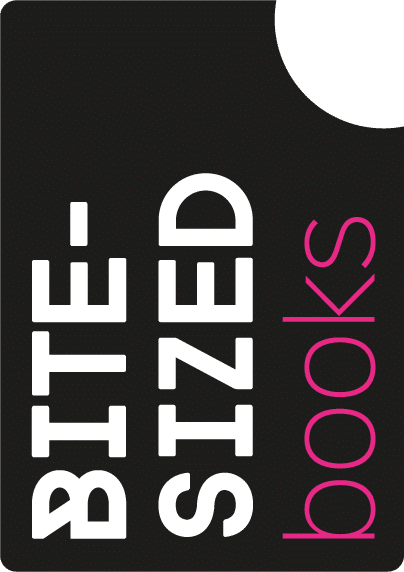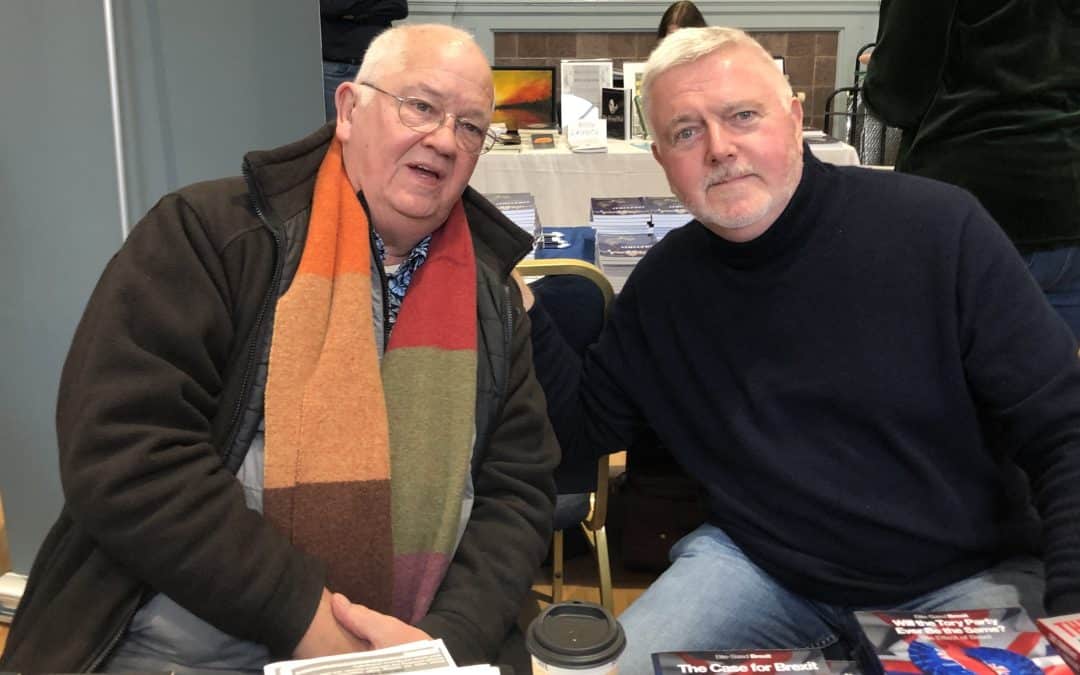Meet our Authors
An occasional series – No.5 John Mair
Julian Costley, CEO & publisher at Bite-Sized Books, interviews some of our authors to provide further background to their books and to their approach to writing. And a little ‘behind-the-scenes’ glimpse of their life and influences.
In this edition Julian talks to editor, journalist, and TV producer John Mair about his prolific book output, his eminent TV career, his empathy with, and determination to support, Guyana, and his pearls of wisdom for budding editors and journalists.
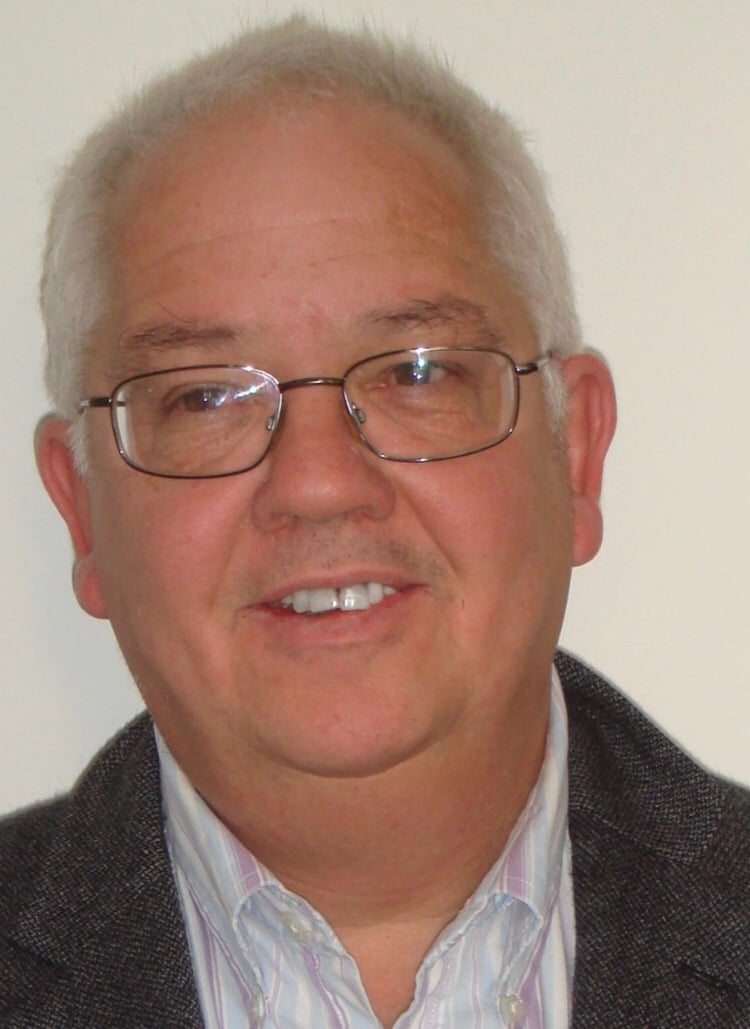
JC. Welcome John, before we talk about the books we’ve published for you, I’d like to begin by you sharing how we know we each other?
JM – We first met in June 1990, 34 years ago! You were running the Computer Channel at British Satellite Broadcasting and our mutual friend, Geoffrey Davies your Producer, brought me in to direct your very first TV programme – a live broadcast from the NEC. I was a freelance director working for anybody who paid me on time.
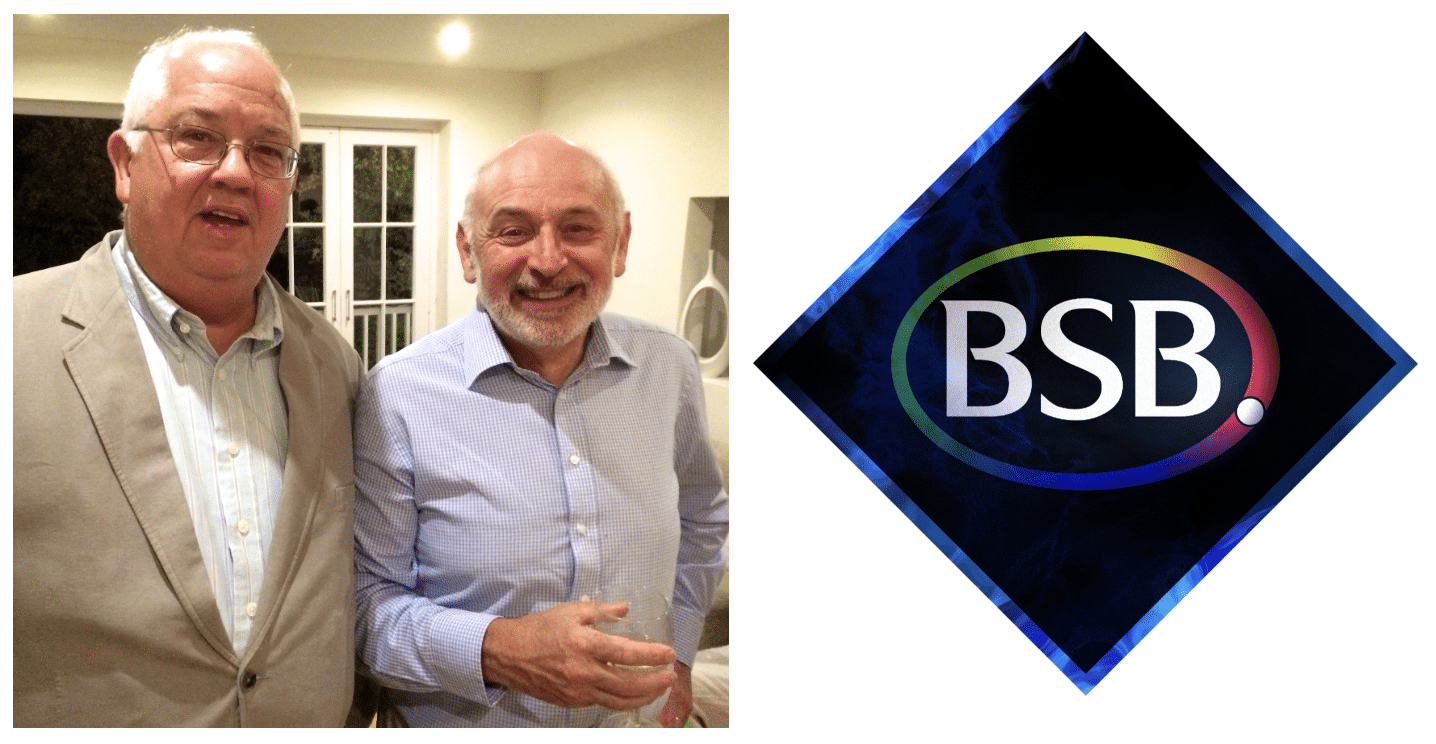
John Mair with Geoffrey Davies reminiscing about the ill-fated British Satellite Broadcasting (BSB). Geoffrey was a channel producer at BSB and brought John in to direct the channel’s very first broadcast.
JC – Yes, in production terms it was great success thanks to you. Less so in audience numbers. But therein lies one of the reasons for the demise of BSB! I recall you brought in the late Richard Kershaw as presenter.
JM – I’ve written much about ‘merger’ of Sky and BSB and even made a one-hour BBC LateShow special ‘Fast Burn!’ based on leaked Board minutes. BSB was a disaster waiting to happen. A folie de grandeur, huge flash offices in Battersea. Big names on the board. Good programmes largely unwatched by the unwashed. The ‘Squarial’ was its’ USP and also the Cross on its back. BSB proved easy pickings for Rupert Murdoch when he came calling …
I did bring in ‘Krasher’ [Kershaw]. Never the easiest of men or the best of presenters sadly.
JC – You were a producer at the BBC. What did you create and produce that we would remember?
JM – I was a late entrant to telly. I had taught high school and been a market researcher in previous lives. In1979, just after joining, I was way down the food chain in the founding of Question Time then presented by the inimitable Robin Day. It was a fill-in programme for the General Election and a slot to keep Day out of the bosses’ hair. 45 years later still there. Simple idea.
I went on to work on daily current affairs shows like Nationwide, including Watchdog, the late unlamented Sixty Minutesand London Plus. BBC Current Affairs in those days was an independent republic in Lime Grove. Ploughed its own furrow and kept under the radar from the thought police of Broadcasting House. It got the BBC into trouble. Sometimes by design. John Birt took a wrecking ball to the building and to independent current affairs when he arrived as Director General.
I moved off to freelance directing for plenty of ITV regional news programmes and making programmes-on Marxism, Faith and Simone Weil, inter alia,-for the early Channel Fourplus directing big events like G7 and Commonwealth Summits and plenty more. I also did longish spells as a producer on Frontline Scotland, ruffling a few feathers and creating a splash along the way and then for BBC Northern Ireland where I pulled together BBC One theme days such as one on the last ship then to be built in the Titanic shipyard. Jobbing but interesting jobbing.
JC – over the years you’ve transitioned from television producer to journalist and become a very successful author. How did that come about? And what was the motivation?
JM – from television to academia or what passes for it in modern universities like Coventry. There I taught broadcast journalism and invented the Coventry Conversations – over 300 big names came to talk to media students each and every week. They got an audience. Put the university on the national media map. There I met Professor Richard Keeble, the doyen of journalism academics and between us we invented a new book format-the ‘Hackademic’ tome which mixed hacks and academics between the same cover on contemporary subjects. Turned around fast. The subjects ranged from the Leveson Inquiry on Press standards to the War in Afghanistan to the future of the BBC. That genre using old and newly made ‘hack’ contacts has proved enduring am just editing my 60th (you read that right) book. This one on the British General Election of 2024 and the media.
The template and modus operandi are simple. Find 30 or so authors with something to say. No fee. Get them to say it clearly and quickly. Put it together thematically at a cheap price. Some of the writing is superb, some not. We polish it in editing. All of the books are interesting, all have impact, all get plenty of publicity and re-use in the national media. Some are real gems – Lord Leveson read at least one of them-on hacking – in the course of his hacking inquiry. One of the latest, How do we pay for the BBC after 2027? has set the agenda for the BBC licence fee debate.
JC – And I’m pleased to say, Bite-Sized Books has played a large part in publishing those books – I believed we’re up to around 30 now out of an extraordinary 60 titles you’ve edited altogether?
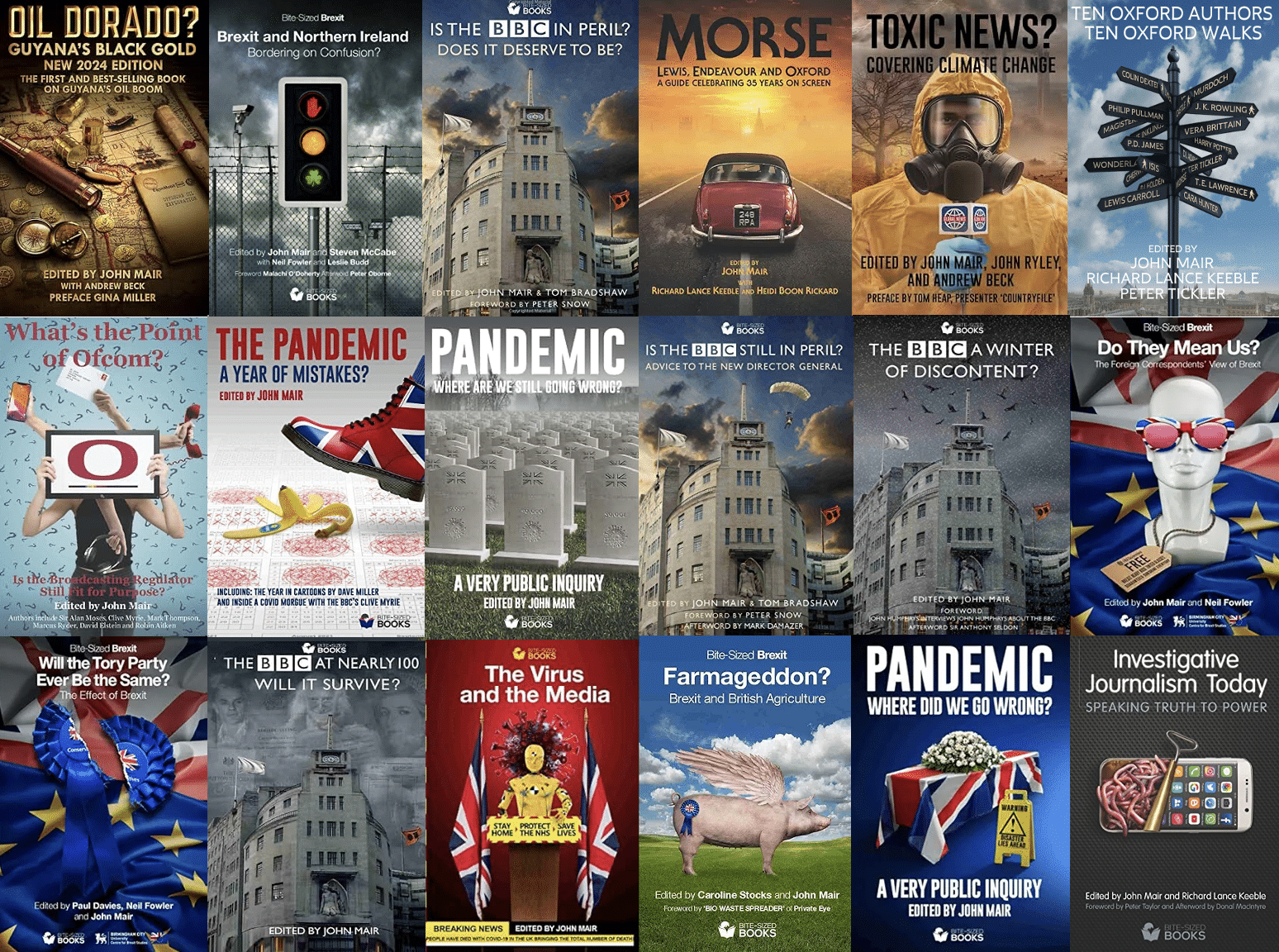
A sample of John’s prolific output. The result of his ‘Hackademic’ approach; getting ‘the great and the good’ to contribute their expertise that he combines with his own writing to create timely and highly informative books.
JM – Paul Davies must regret meeting me at a Christian Wolmar Book launch in Marylebone. Since then BSB have published 30 Mair edited books. Abramis have published an equivalent number. Recently my own little imprint Mair Golden Moments (the joke is deliberate) has published four or five including one of my favourites ’Boris Johnson. Media Creation, Media Celebrity, Media Casualty’ with a stunning Dean Stockton cover. See: https://bite-sizedbooks.com/dean-stockton-2/
I never forget a face or a name of somebody I’ve met socially or professionally. I inveigle many of them to write short essays for the books. No fees remember. In the course of sixty books probably commissioned between 800 and 1000 authors. There is a core group of around 100 who are usually happy to contribute to a Mair volume.
They cover not just media but another couple of Mair interests/obsessions. The Guide to the Oxford of Inspector Morse, Lewis and Endeavour is a best seller and in second edition. It led to a packed event in March 2023 in St Barnabas Church in Jericho to mark the end of the TV franchise after close to 100 two-hour films.
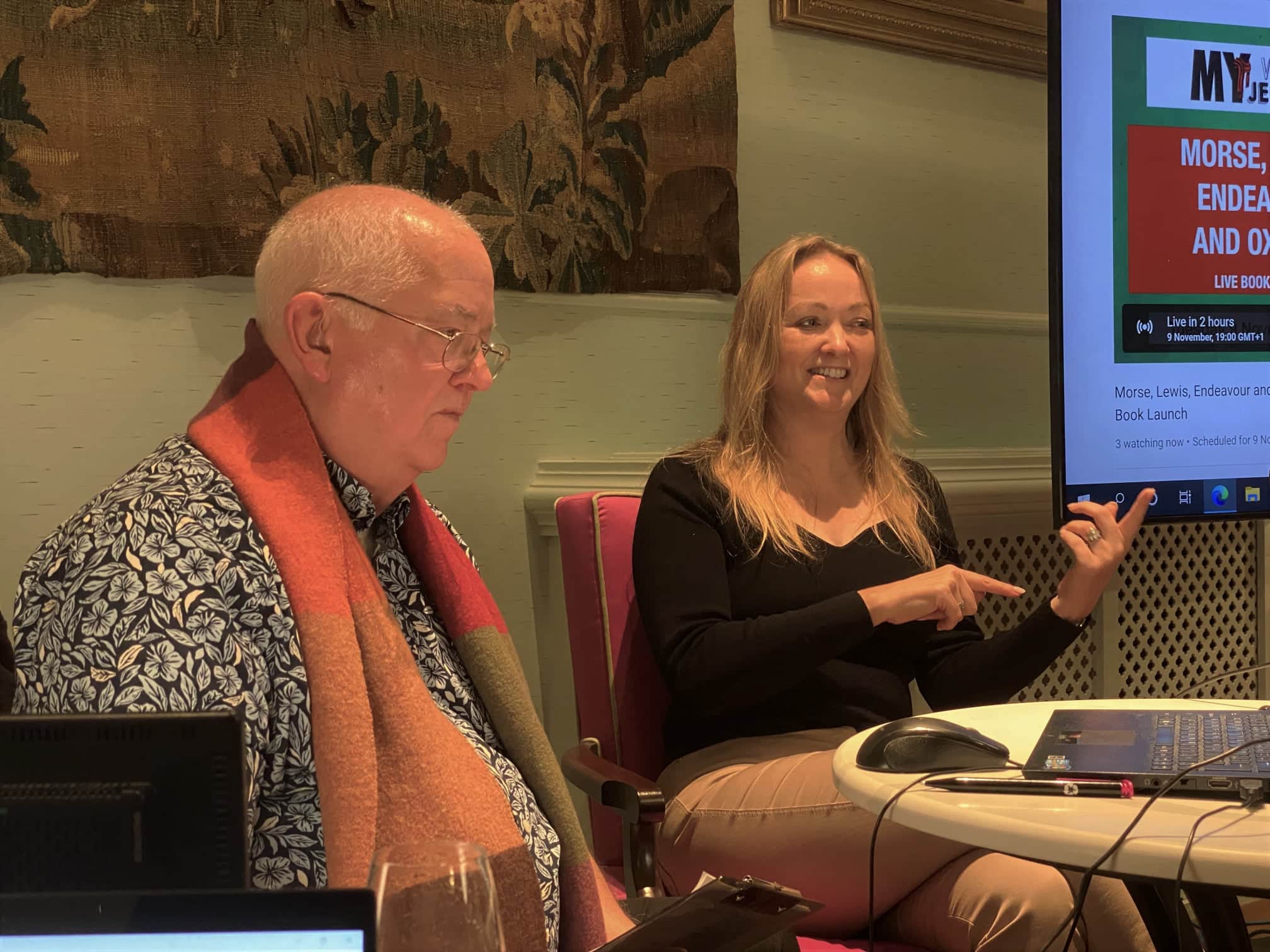
John on stage with Cara Hunter, the crime writer, at the book launch of MORSE, LEWIS, ENDEAVOUR AND OXFORD – CELEBRATING 35 YEARS ON SCREEN.
JC – And I should say, thanks to you so many of your contributors have become authors directly with Bite-Sized Books for which we’re very grateful.
JM – I seem to be responsible for at least half the BSB author roster. One short essay for me then a whole book for you Julian. John Redwood, Farukh Dhondy, Liz Gerard, Angela Antetomaso, Vicky Pryce to name a few. Will you ever pay me a Finder’s Fee Julian?
JC – Fast forward to 2021 and we came back in contact again? How did that come about?
JM – The Bite-Sized Books founder and chairman, Dr Paul Davies, was, after 10 years of running the publisher, looking to step back and find a new proprietor to take over. He messaged all the authors and I turned to our mutual friend, Geoffrey Davies, to see if he could suggest someone. He approached you and, as they say, the rest is history.
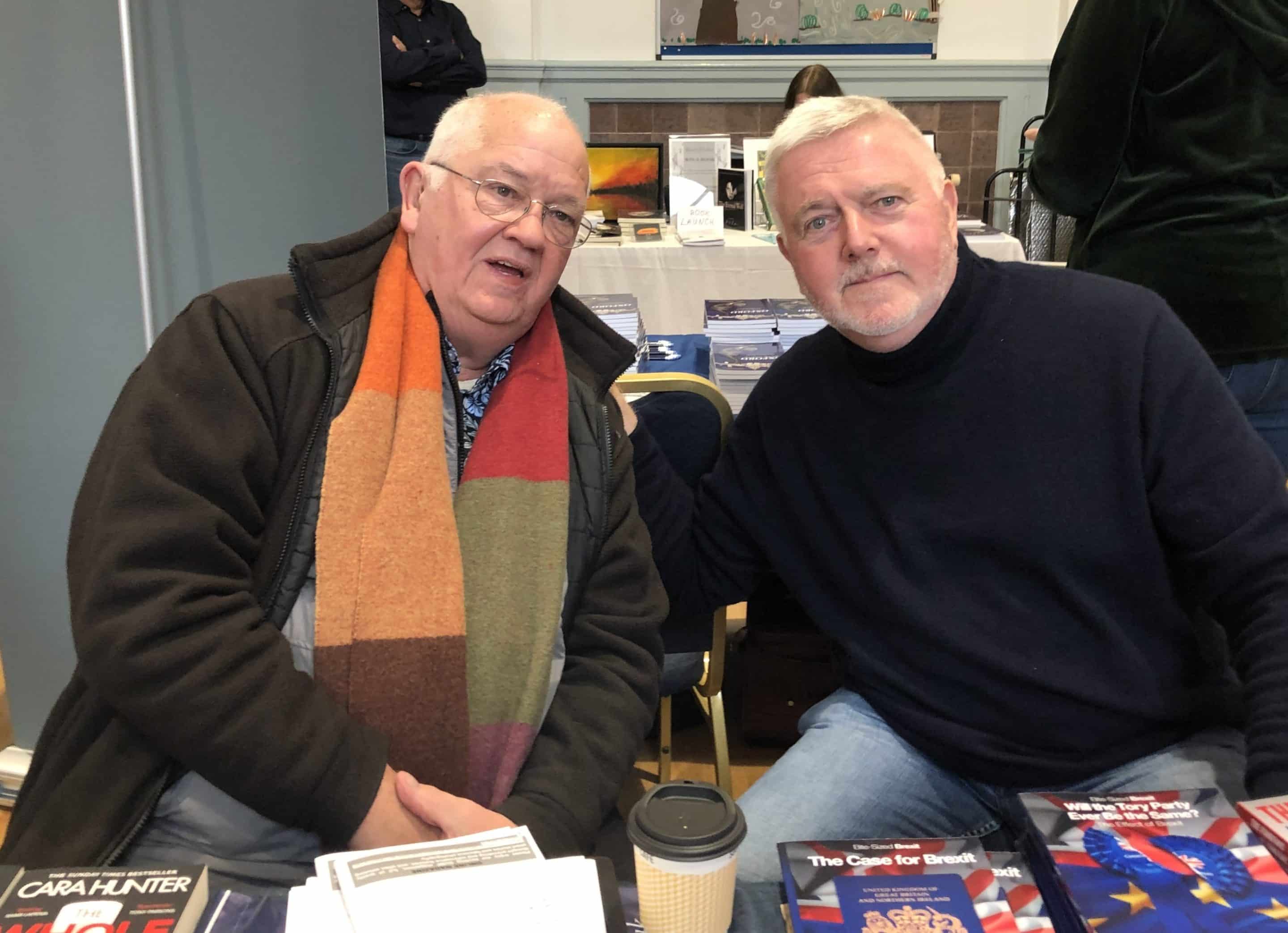
John Mair and Bite-Sized Books’ publisher, Julian Costley, hustling John’s books at an Oxford book fair.
JC – let me take you back to the books. Many of your books deal with topical political issues. I’m thinking of your strong views about the future of the BBC and in particular your strong opinions regarding the future of the licence fee. Are your books an expression of your passions?
JM – Always been fascinated by the media in all its shapes and forms. I did it, made it, taught it. I also like to think of myself as being entrepreneurial and able to spot market niches for the books I curate.
JC – We always like to ask our authors to pass on advice to the next generation of journalists and book authors. How did you get in the BBC in the first place and what can you share in terms of guidance to those wishing to follow in your footsteps?
JM – Life is a series of opportunities but you make your luck. Be brimful of ideas, be brimful of energy and don’t promise what you cannot deliver. Originality is all, but so too is shoe leather. If it means getting up at 04.30 to polish a book or a piece, then so be it. Don’t give up. Be persistent. It sometimes annoys but it also sometimes bears fruit. Shrinking violets do not make good journalists or book editors. Remember everybody you met and where you did. They are flattered however famous and important they are to be asked to write. You are the fulcrum to open plenty of doors,
JC – All that know you John, know you’re a true workaholic and always brimming with new ideas for your next books. It must take up so much of your time. But in those rare moments when you’re not writing or encouraging others to contribute to your books, what other than writing books do you like to do?
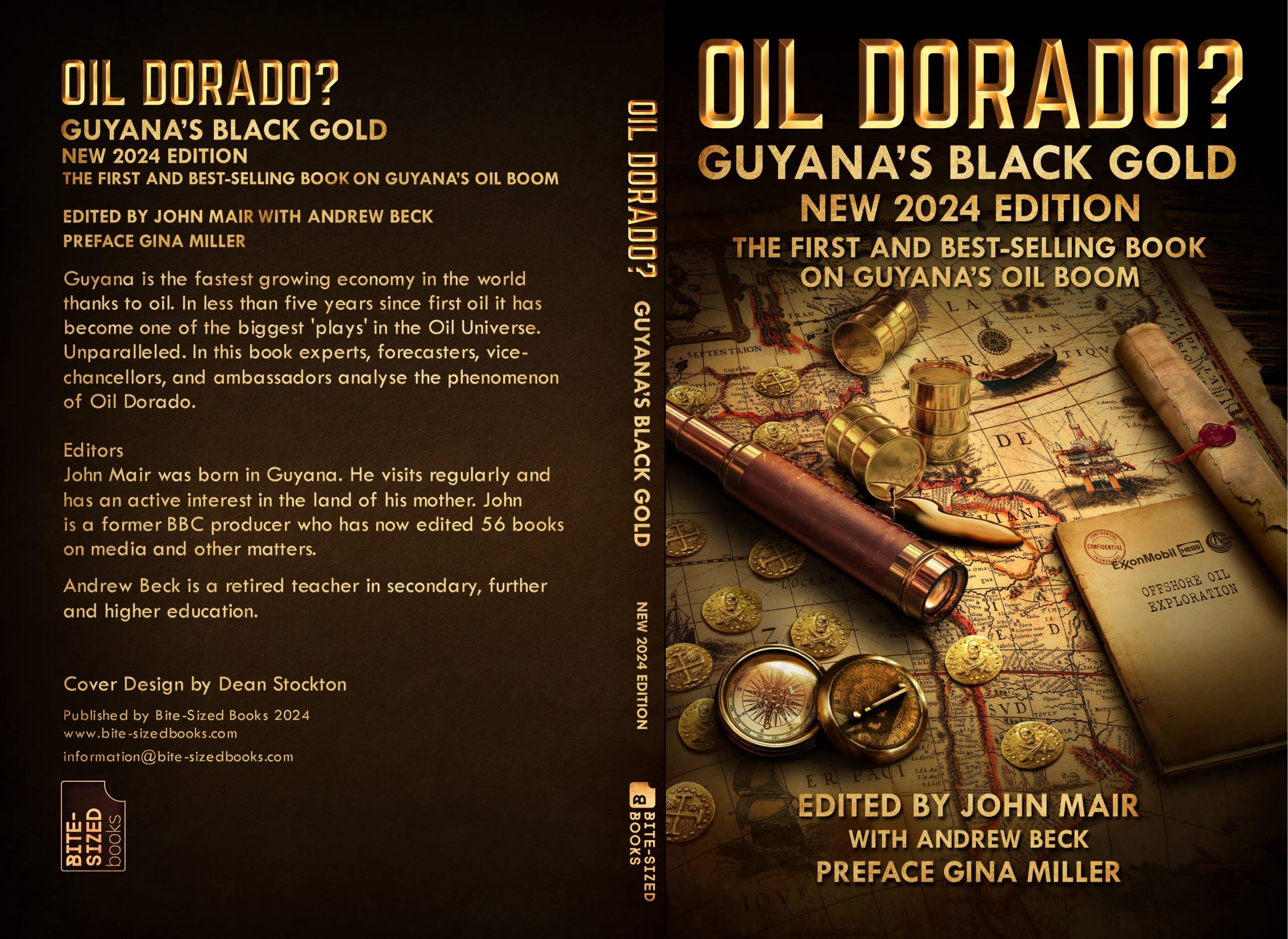
Oil Dorado – Guyana’s Black Gold. Now in it’s 6th edition, is John’s comprehensive guide to Guyana’s extraordinary new presence as a world class oil producer.
JM – I have a family history in Guyana, so I travel there frequently. I’m playing a large part in the promotion of the extraordinary impact significant oil finds are having on the economy. But in terms of hobbies and pastimes I run a community organisation called My Jericho which has put on over 300 talks and visits in my neighbourhood. Raised over £5,000 to get the church clock working and for the church pantry.
JC – you’ve had a fascinating life and career. Thank you for this contribution and thank you again for being our most prolific and successful author! And apropos finders’ fees; we’ll make sure you’re rewarded on earth not heaven.
